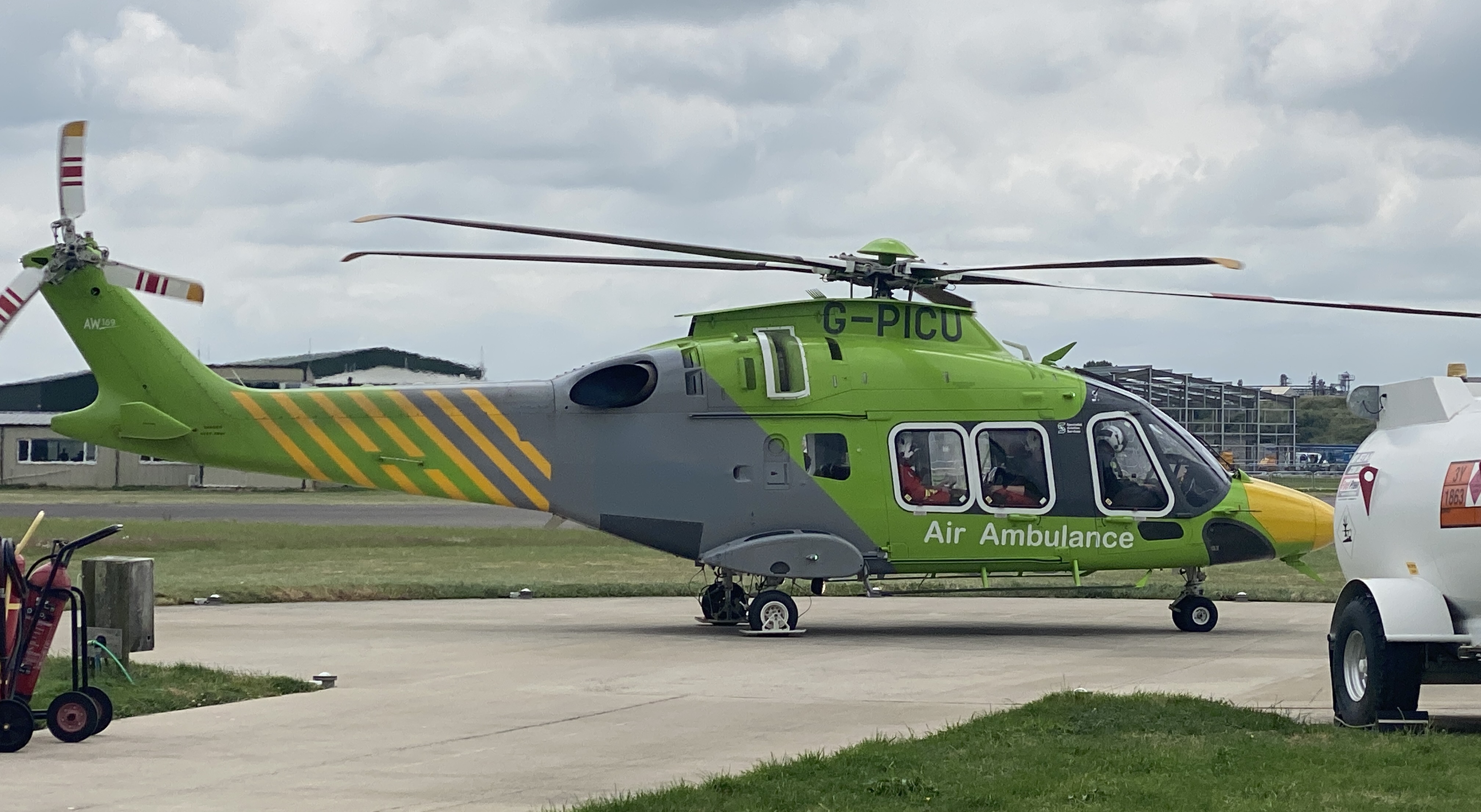Earlier this year, the UK Civil Aviation Authority and the Department for Transport announced the successful applicants for the third round of applications to the Global Navigation Satellite System (GNSS) Programme. Funding was allocated to blue light landing sites to put in place new systems to allow helicopters to operate in challenging conditions that they previously would not have been able to do, which will save lives in critical situations.
Since then, the UK Civil Aviation Authority has been working with the successful applicants to deliver the benefits that the funding will bring and help enable the new procedures to be implemented safely and efficiently. Our GNSS facilitators from within the UK Civil Aviation Authority’s Future Airspace team made a site visit to Henstridge aerodrome (Somerset) in June to look at PinS approaches in relation to “Blue Light” helicopters.
Point in Space
‘PinS’ is a type of GNSS procedure which describes “Point in Space” navigation using satellite information to construct a simple approach from a start point to an end destination. Unlike major airports, police & air ambulance helicopters have a wide-ranging sphere of operations – but for air ambulance flights, in general, their mission is to transfer patients to a major trauma hospital. If the weather is poor, then a helicopter transfer may not be possible, meaning a slower road trip by ambulance.
Of equal importance for resource management, in order not to have the helicopter, pilots and medical crew stuck in a location due to weather considerations, having the ability to return to base is also high priority. A PinS approach will greatly assist in increasing the utility of the air ambulance helicopters – which will directly save lives.
Visiting an air ambulance service
The PinS programme was introduced in Spring this year after funding from the Department for Transport became live, and the first sponsors have started the detailed airspace change procedures & associated paperwork required to implement this work. To look over local facilities & operating considerations, the team took a comprehensive tour at Henstridge aerodrome, hosted by the local Chief Pilot for Special Air Services, who operate on behalf of Dorset & Somerset Air Ambulance.
It is an all-year-round facility, available from 7am to 2am, and in the last year conducted just under 1200 missions – with the busiest day having 8 taskings. The Air Ambulance lost about 450 hours of available operating time due to adverse conditions. This is where PinS will directly help future operations.
Currently, the service has one helicopter (but hope to move to two in the future). They have an AW169, a 2-engined machine, which is very good for safety and operating performance. The HEMS (helicopter emergency medical services) team consists of two pilots, a specialist trauma care doctor & two paramedics; there is a spare seat for another observer or trainee medical professional.
Benefits and flexibility
There was great engagement amongst all the pilot and medical team. The pilots were particularly enthusiastic about PinS as it will give them much more flexibility. For example, the team can often spend an hour or more at a hospital while the HEMS medical team transfer the patient to the A&E specialists. The weather can be unforgiving & change for the worse whilst these time critical events take place.
This visit is just one of several taking place with the UK Civil Aviation Authority’s GNSS facilitation team to make sure that those who have secured the funding are able to implement the benefits that PinS can deliver. Our team is helping guide sponsors and emergency service operators through the streamlined Airspace Change Process, ensuring a smooth and efficient transition to this innovative system.
In this case, such a system will help to save lives and benefit so many surrounding communities for years to come.


Leave a comment
Fields marked with an asterisk (*) are required.